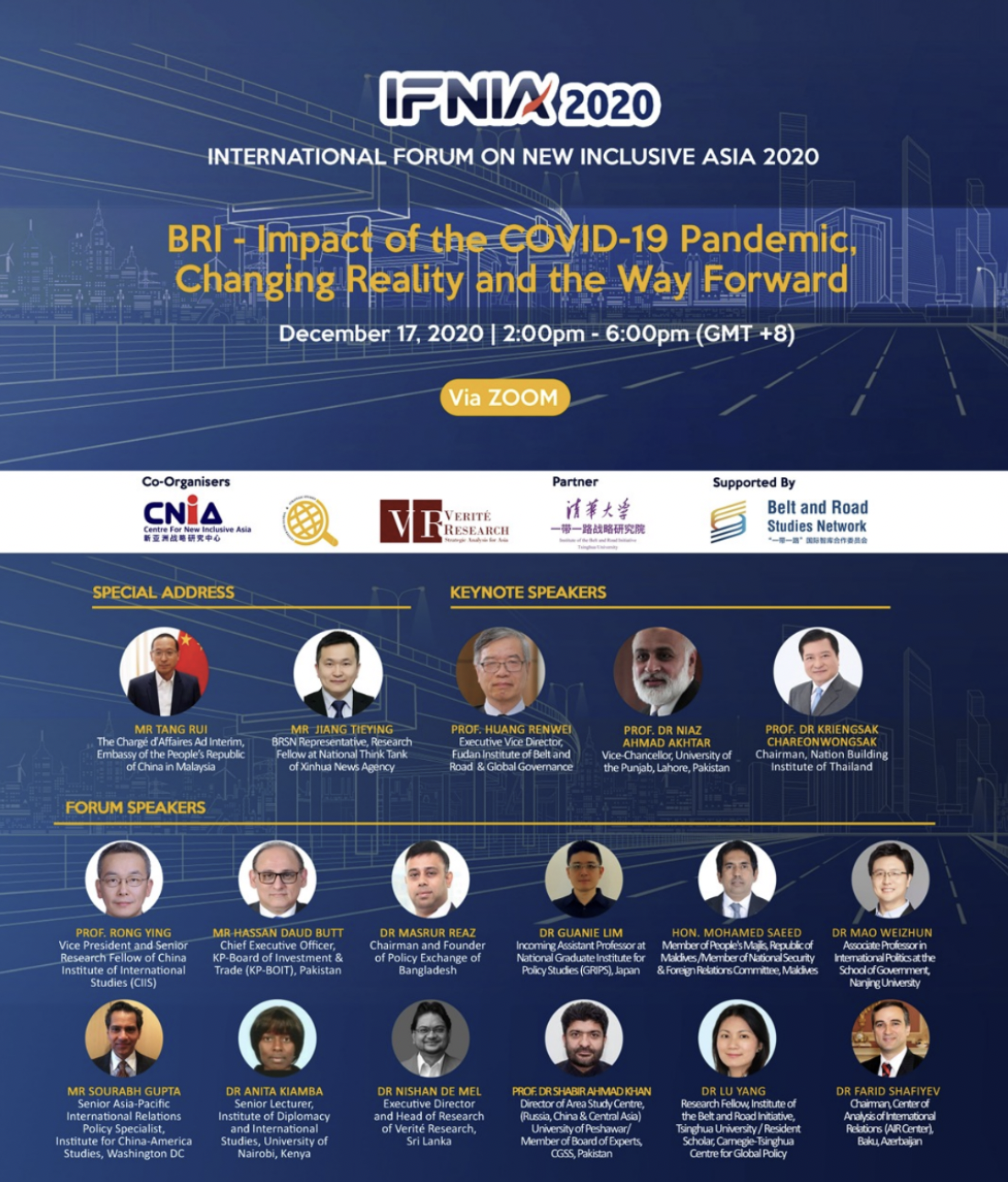
IFNA 2020 – BRI – Impact of the Covid-19 Pandemic, Changing Reality and the Way Forward
Launched in 2013, the Belt and Road Initiative (BRI) has faced many challenges but none like those posed by COVID-19. As the ripple effects of the coronavirus are felt across the globe, the scope and scale of BRI will invariably be affected, both in the near and longer-term future.
However, there are regional variation in the dynamic of the COVID-19 impact on BRI. From Africa to Central Asia, and South Asia to Southeast Asia, the disruptions assume diverse shapes and forms. While some BRI projects might have been temporarily grounded or stalled due to lockdowns, a few BRI partner countries have requested that their loans be forgiven or repayments be delayed. Post pandemic, BRI would need to address issues on debt sustainability and economic viability of mega infrastructure projects.
According to the World Bank projection, China is the only major economy that will register positive growth in 2020 while the global economy is expected to contract by about 4.4%. Could the China-led BRI act as the engine of growth that would accelerate the global economic recovery from the pandemic?
COVID-19 has reminded the world that viruses recognise no geographical borders or ethnicity. It also reminds the world that mankind is a community with shared future and greater cooperation in public health systems among BRI countries is urgently needed.
In the meantime, the US has elected a new president and ASEAN+5 have signed the world’s largest trade deal, the Regional Comprehensive Economic Partnership (RCEP), which covers nearly a third of the world population and accounts for 29% of global GDP. Would such new reality in anyway affect BRI?
IFNIA 2020 was co-organised by the Centre for New Inclusive Asia, Malaysia, the Centre for Global and Strategic Studies (CGSS) of Pakistan, and Verité Research of Sri Lanka in partnership with the Institute of the Belt and Road Initiative, Tsinghua University, China. This Forum was supported by the Belt and Road Studies Network ( BRSN), an international network of more than 100 BRI think tanks worldwide, which was launched at the 2nd Belt and Road Forum held in Beijing in April 2019.
Mr Tang Rui, Chargé d’Affaires Ad Interim of the Embassy of the People’s Republic of China in Malaysia delivered a Special Address at the Forum. A panel of 16 distinguished scholars and experts from 9 countries shared their views and insights on the impact of the COVID-19 pandemic on BRI, the changing reality as well as how BRI should refocus cooperation and development strategies in the post pandemic era.
For those who missed IFNIA 2020, the video recording of the event is available here.

